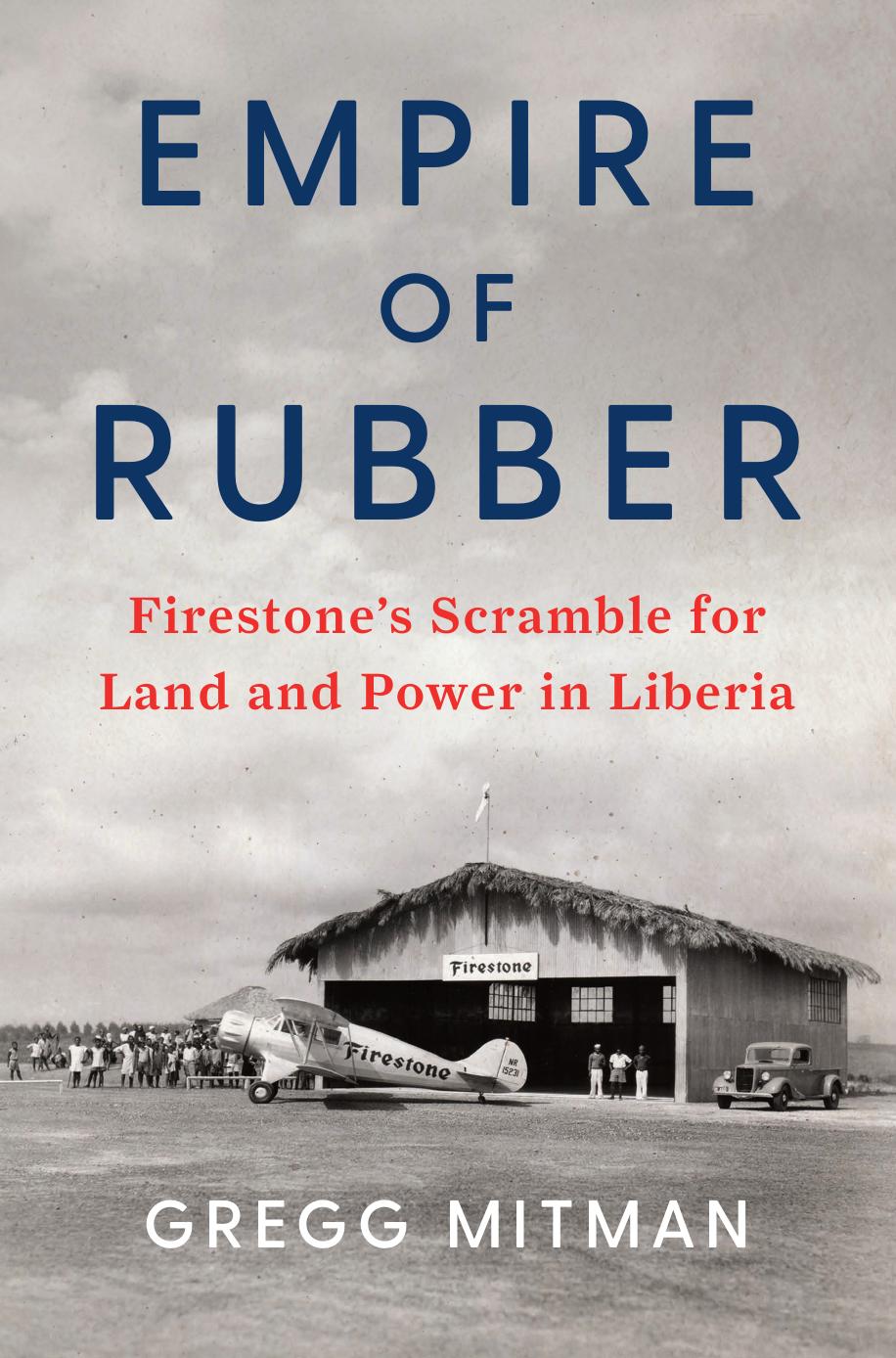Empire of Rubber by Gregg Mitman

Author:Gregg Mitman
Language: eng
Format: epub, pdf
Publisher: The New Press
Published: 2021-06-15T00:00:00+00:00
Monrovia, capital of Liberia. When Harry McBride, former American fiscal adviser, visited Monrovia in 1934, he reported back to US secretary of state Cordell Hull that he was impressed by what a modern city it had become. From Firestone Plantations Company, Views in Liberia (Chicago: Lakeside Press, R.R. Donnelley & Sons, 1937).
Further, Barclay had shown McBride his three-year plan of proposed administrative, economic, educational, and public health reforms for which he would seek legislative approval. His plan guaranteed Liberiaâs sovereignty in overseeing its affairs and included many League recommendations.74 McBrideâs report, contrary to portrayals in the foreign press of a degenerate, âprimitive,â and âbackwardâ country, offered a favorable impression of Liberia to which Hull warmed.
Eventually a rapprochement between Barclay and Harvey Firestone Jr. would also help break the political logjam that blocked the flow of capital, goods, equipment, and personnel between the United States and Liberia during the early years of the Great Depression. Economic and political pressure changed Firestoneâs view. When the British and Dutch in April 1934 again tightened the worldâs rubber supply, Firestone grew eager to resume tapping and planting operations. Furthermore, the State Department grew tired of Firestoneâs bullying. When Harvey Sr.âs right-hand man, Bill Hines, confronted the chargé dâaffaires in Monrovia, boasting of Firestoneâs political power and threatening to âunleash a newspaper campaignâ against Rooseveltâs administration if it failed to assist Firestoneâs efforts âto control Liberia,â Jay Moffat of the State Department had had enough.75 In early October 1934, after receiving McBrideâs report, Moffat summoned the father and son to Washington. The career diplomat, who had served under five American presidents, made it clear that the United States would no longer intervene in âsmall countries, bending governments to their will, particularly on behalf of commercial interests.â76
Moffatâs words had an impact. Harvey Jr. arrived in Monrovia in late January of 1935. The debonair executive was thirty-seven years old. He had keen interest and knowledge of business and international relations and possessed the social graces befitting a tête-à -tête with a foreign head of state. In meetings that lasted into the morningâs early hours, Barclay and Firestone spoke frankly on a broad range of subjects touching on their respective interests. Barclay impressed upon the younger Firestone that it was within his power to halt the companyâs operations without âviolating the terms of the Planting Agreement.â He could, for example, with a word to chiefs in the hinterland dry up the plantationsâ labor supply. Barclay added that it had been himself, not then president King, who had most favored granting Firestone permission to operate in Liberia.77
For five years, the Firestones had tried intimidation, mudslinging, and political maneuvering to discredit Barclay and remove him from power. Harvey Jr. now had to cast the lot of the rubber empire that rested increasingly in his hands. Barclay was facing an election against former president King. Whether swayed by interactions with Barclay, Waltonâs influence, Hullâs admonishment, or the fate of millions of maturing rubber trees, Harvey Jr. forged a mutual accord with the formidable Firestone adversary.
Download
This site does not store any files on its server. We only index and link to content provided by other sites. Please contact the content providers to delete copyright contents if any and email us, we'll remove relevant links or contents immediately.
The Secret History by Donna Tartt(19092)
The Social Justice Warrior Handbook by Lisa De Pasquale(12190)
Thirteen Reasons Why by Jay Asher(8912)
This Is How You Lose Her by Junot Diaz(6888)
Weapons of Math Destruction by Cathy O'Neil(6281)
Zero to One by Peter Thiel(5802)
Beartown by Fredrik Backman(5756)
The Myth of the Strong Leader by Archie Brown(5509)
The Fire Next Time by James Baldwin(5447)
How Democracies Die by Steven Levitsky & Daniel Ziblatt(5219)
Promise Me, Dad by Joe Biden(5154)
Stone's Rules by Roger Stone(5088)
A Higher Loyalty: Truth, Lies, and Leadership by James Comey(4964)
100 Deadly Skills by Clint Emerson(4926)
Rise and Kill First by Ronen Bergman(4790)
Secrecy World by Jake Bernstein(4753)
The David Icke Guide to the Global Conspiracy (and how to end it) by David Icke(4720)
The Farm by Tom Rob Smith(4514)
The Doomsday Machine by Daniel Ellsberg(4490)
